A game Chinese hoopsters are bound to lose
Updated: 2013-08-20 01:12
By Sun Xiaochen and Lei Lei (China Daily)
|
||||||||
Archaic training system, bureaucratic management cited as cause for failure
Chinese basketball has found itself in hot water after a humiliating loss by the national team at the recent Asian Championship in Manila and reports about management chaos.
The situation is reminding fans of the disgraceful scene in Chinese soccer.
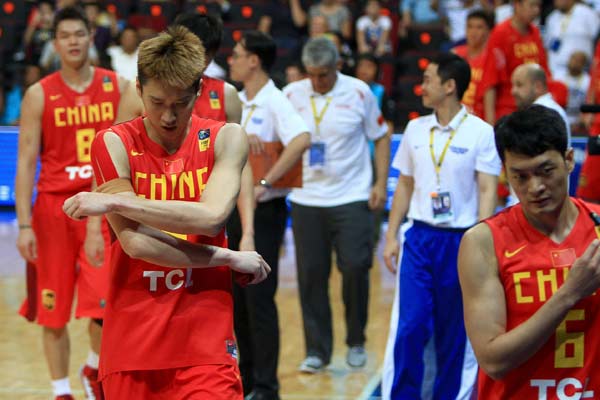 |
|
Sun Yue (left) and other members of the Chinese mainland basketball team leave the court after being beaten 96-78 by Chinese Taipei in the FIBA Asia Championship quarterfinals on Aug 9. [ROUELLE UMALI / XINHUA] |
Vowing to defend its title in Asia, the national squad ended up with its worst result since 1975, finishing fifth and conceding an unexpected defeat to Chinese Taipei in the quarterfinals.
The game's shrinking talent pool — a result of poor grassroots development — should take the blame, said former NBA all star Yao Ming.
"School basketball and professional basketball are two parallel lines in our country," Yao told China Daily at a recent charity program. "Relying only on resources in the closed State-run system, we can't produce enough talented players at the bottom."
According to the International Basketball Federation, the United States has almost 25 million registered basketball players.
In comparison, China has only 1,000 in national and youth teams registered with the Chinese Basketball Association.
Young people aged 14 to 17 in the US get to play more than 100 organized amateur games a year, while those of the same age in China only get to play 20.
Although youngsters dribbling basketballs are seen everywhere in China, that doesn't necessarily translate into reserves of talent.
"They have very little chance of being drafted into the system," Yao said.
A roster reshuffle, which was supposed to take place after the last Asian Championship in 2011, was postponed twice — at the London Olympics and the Manila tournament — due to the governing body favoring veterans.
Promising young guns like center Wang Zhelin and Li Muhao were cut before the London Games and lost the chance to hone their skills on the bigger stage.
"Lack of experience is always the excuse for cutting them, but how can they gain that experience without playing major events?" renowned basketball commentator Xu Jicheng said.
"It's not the time for Team China to reap results, so why not just keep your hands off and let the youngsters play and grow."
Xu also said the CBA, which relies heavily on foreign players to take leading roles, should take some responsibility because young Chinese players rarely see enough time on the court.
Bureaucracy criticized
Fans keep asking: Will the Chinese Basketball Association join its soccer counterpart to be the most reviled sport governing body in the country?
It seems so.
The CBA's bureaucracy and alleged infighting for power has drawn massive criticism from the public.
The latest drama happened on Friday night when national squad coach Panagiotis Giannakis refused to shake hands with CBA Vice-President Hu Jiashi, who brought gifts to see him off before holidays in front of the media.
Hu, in charge of national team affairs, was left embarrassed, which sharply contrasted with his previous public statement that "Giannakis has been working together with the managing staff really well".
A China Youth Daily report on Friday opened fire on Hu, saying he had always interfered in Giannakis' tactics instruction and roster recruitment by urging players to ignore the coach's orders during games. Hu also "installed veterans in the final 12-man lineup without consulting Giannakis".
However, some media reported that Giannakis' furious encounter with Hu was set up.
"Somebody definitely directed the whole thing," Jia Lei, a basketball reporter with sina.com who was at the scene, said on Sunday.
Veteran hoop writer Zhou He with Beijing Youth Daily, who followed the team in Manila, suggested that Xin Lancheng, the CBA chief, was the man pulling the strings. "Xin wanted to pass the buck to Hu while removing the focus of public criticism off himself," Zhou said in his blog.
However, former national coach Bob Donewald didn't buy the allegation. "During my three years, Mr Xin, Mr Hu, and our team leader Zhang Xiong were very, very supportive," Donewald said on his micro blog on Monday.
Neither Xin nor Hu has made further comments on the debate and the national team has been dismissed after a three-day self-assessment meeting, which wasn't open to the media.
Whether the team will retain Giannakis or fire him is yet to be decided, but the 54-year-old said he will be back soon.
"To be able to coach Team China was a big pleasure for me. We had many problems during the games. But the most important is to see how we could work to make the things more positive," he said.
CBA reform urged
Meanwhile, the league's prosperity in recent years failed to trickle through to the national team, which lost all five of its group matches to finish at the bottom at the London Olympics.
Despite decent TV ratings and sponsorship deals lured by high-profile NBA stars, the CBA remains a half-professional league with decision-making power centralized at the association.
In terms of reform, the CBA actually lags behind its soccer counterpart, the Chinese Super League, which established a body of 17 shareholders in 2005 to run the league, said Li Shengxin, a sports management expert at Beijing Sport University.
"The CBA is actually one of the most conservative governing bodies, and the process of making it professional has almost stopped since the end of the 2008 Beijing Olympics," Li said.
Contact the writers at sunxiaochen@chinadaily.com.cn and leilei@chinadaily.com.cn
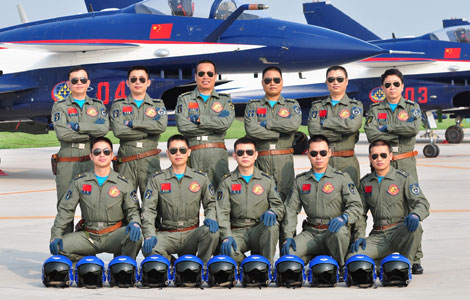
 PLA aerobatic team's overseas debut
PLA aerobatic team's overseas debut
 Wild Africa: The new attraction to Chinese tourists
Wild Africa: The new attraction to Chinese tourists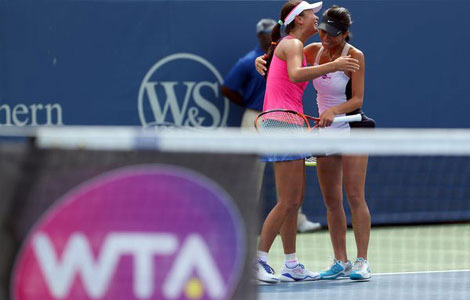
 Peng Shuai, Hsieh Su-wei win Cincinnati title
Peng Shuai, Hsieh Su-wei win Cincinnati title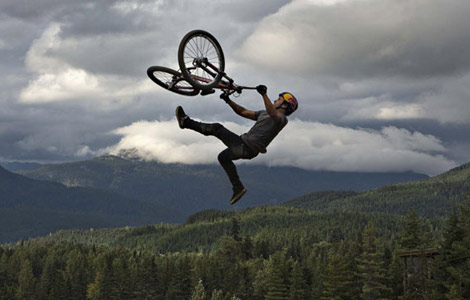
 Ride to fly on the top of mountains
Ride to fly on the top of mountains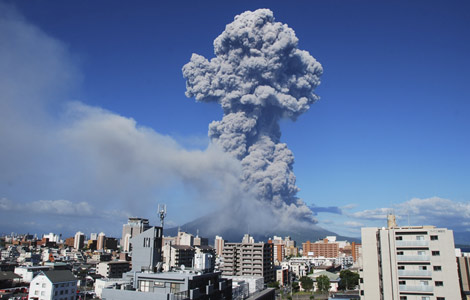
 500th eruption of Sakurajima Volcano in 2013
500th eruption of Sakurajima Volcano in 2013
 A cocktail that's a treat for the eyes
A cocktail that's a treat for the eyes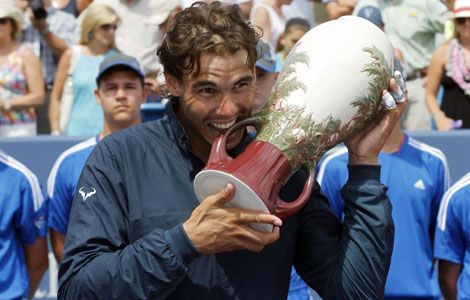
 Nadal beats Isner to win first Cincinnati crown
Nadal beats Isner to win first Cincinnati crown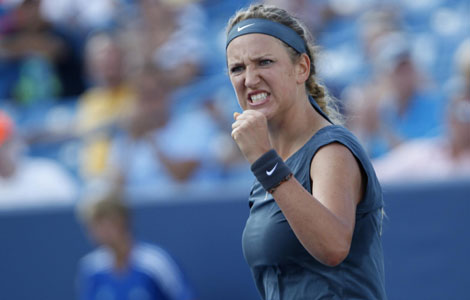
 Azarenka beat Williams for Cincinnati title
Azarenka beat Williams for Cincinnati title
Most Viewed
Editor's Picks

|

|

|

|

|

|
Today's Top News
ROK, US launch joint military drill
Well-behaved int'l firms welcomed in China
Death toll in Philippines ferry accident hits 52
China defense chief in DC
Trading mishap reveals flaws
New ban on NZ dairy products
Senior care opens wide for investors
Iran signals willingness to resume nuclear talks
US Weekly

|

|







